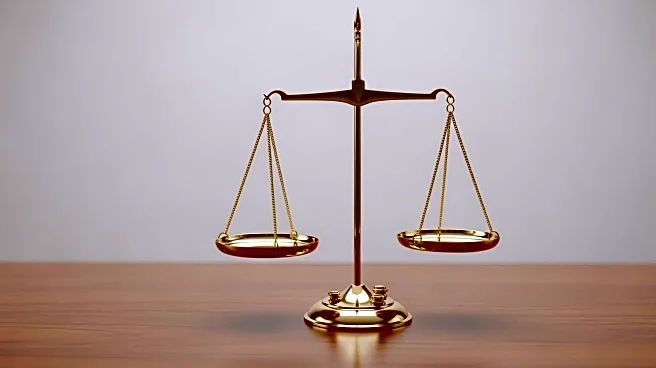What's Happening?
President Trump has issued a pardon for Changpeng Zhao, the founder of Binance, a major cryptocurrency exchange. Zhao had been convicted of enabling money laundering through Binance and was sentenced to four
months in prison. The pardon, announced by White House press secretary Karoline Leavitt, is seen as a significant development in the ongoing regulatory challenges faced by the cryptocurrency industry. The Biden Administration had previously pursued legal action against Zhao as part of its broader efforts to regulate the crypto sector. The pardon allows Zhao to potentially resume his leadership role at Binance, which has been ordered to pay substantial fines for its past violations.
Why It's Important?
This pardon is a critical moment for the cryptocurrency industry, highlighting the complex relationship between regulatory enforcement and political influence. The decision could have far-reaching implications for how cryptocurrency exchanges operate within the U.S., potentially encouraging other companies to challenge regulatory actions. Critics argue that the pardon undermines efforts to hold crypto firms accountable for illegal activities, while supporters claim it promotes innovation and economic growth. The move also reflects the Trump administration's more lenient approach towards the crypto industry, contrasting with the stricter regulatory stance of the previous administration.
What's Next?
In the wake of the pardon, Binance is expected to continue its operations with renewed vigor, potentially expanding its market presence. The decision may lead to increased lobbying efforts by the crypto industry to secure favorable regulatory conditions. Lawmakers and regulatory bodies are likely to scrutinize the pardon process, potentially leading to calls for reforms to ensure transparency and accountability. The case may also prompt discussions on the need for a balanced approach to cryptocurrency regulation that fosters innovation while safeguarding against financial crimes.
Beyond the Headlines
The pardon raises important questions about the influence of political connections in legal proceedings, particularly in cases involving significant financial interests. It underscores the ethical challenges of balancing business interests with regulatory responsibilities. The case also highlights the cultural shift towards greater acceptance of cryptocurrency as a legitimate financial instrument, despite ongoing concerns about its potential misuse. As the industry evolves, the debate over the appropriate level of regulation and oversight will continue to shape its future trajectory.









